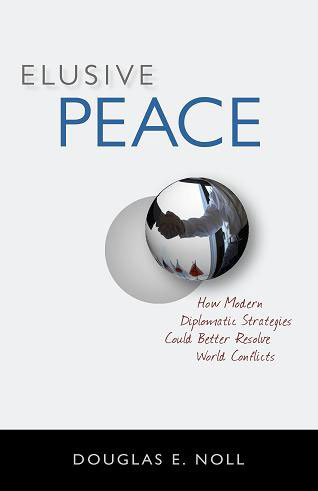Excerpt from Chapter 7 - Fear, Anger and Decisions
"My fellow citizens. At this hour, American and coalition forces are in the early stages of military operations to disarm Iraq, to free its people and to defend the world from grave danger.
"On my orders, coalition forces have begun striking selected targets of military importance to undermine Saddam Hussein's ability to wage war. These are opening stages of what will be a broad and concerted campaign.
"More than 35 countries are giving crucial support from the use of naval and air bases to help with intelligence and logistics to deployment of combat units.”
With these words, on March 19, 2003, President George W. Bush announced to the world the invasion of Iraq with the stated purpose of overthrowing Sadaam Hussein and eliminating the Iraqi potential to manufacture, distribute, and use weapons of mass destruction.
The previous September, at a speech in Cincinnati, Ohio, President Bush gave the world his reasons for the war that he was to commence seven months later:
“Tonight I want to take a few minutes to discuss a grave threat to peace, and America's determination to lead the world in confronting that threat.
"The threat comes from Iraq. It arises directly from the Iraqi regime's own actions -- its history of aggression, and its drive toward an arsenal of terror. Eleven years ago, as a condition for ending the Persian Gulf War, the Iraqi regime was required to destroy its weapons of mass destruction, to cease all development of such weapons, and to stop all support for terrorist groups. The Iraqi regime has violated all of those obligations. It possesses and produces chemical and biological weapons. It is seeking nuclear weapons. It has given shelter and support to terrorism, and practices terror against its own people. The entire world has witnessed Iraq's eleven-year history of defiance, deception, and bad faith.
* * *
"Iraq could decide on any given day to provide a biological or chemical weapon to a terrorist group or individual terrorists. Alliance with terrorists could allow the Iraqi regime to attack America without leaving any fingerprints.
Some have argued that confronting the threat from Iraq could detract from the war against terror. To the contrary; confronting the threat posed by Iraq is crucial to winning the war on terror. When I spoke to Congress more than a year ago, I said that those who harbor terrorists are as guilty as the terrorists themselves. Saddam Hussein is harboring terrorists and the instruments of terror, the instruments of mass death and destruction. And he cannot be trusted. The risk is simply too great that he will use them, or provide them to a terror network.
"Terror cells and outlaw regimes building weapons of mass destruction are different faces of the same evil. Our security requires that we confront both. And the United States military is capable of confronting both.”
About 2,600 years earlier, the Corinthians characterized the Corcyreans in somewhat the same way. Corinthian ambassadors in Athens argued:
“We must believe that the tyrant city that has been established in Hellas has been established against all alike, with a program of universal empire, part fulfilled, part in contemplation; let us then attack and reduce it, and win future security for ourselves and freedom for the Hellenes who are now enslaved.”
What is going on here? Haven’t we learned anything in 2,600 years? Are there similarities between the 21st century decision to invade Iraq and the Corinthians’ ancient arguments for war against Cocyra and its possible ally Athens?
If we look closely at President Bush's arguments in his Cincinnati speech, we will see his characterization of Saddam Hussein in terms of a threat to United States’ security. Likewise, in ancient Greece, the Corinthians saw a threat of domination from Cocyra. Fundamentally, these threats triggered the primal emotions of anger and fear.
Fear and anger drive violent conflict. They may not always be the emotions that loose the dogs of war, but once people start dying, fear, and anger play a dominant role in diplomatic, military, and leadership perspectives. Everyone is familiar with being frightened and being hopping mad. What is not so well-known, especially among international negotiators and mediators, is how the emotions of fear and anger distort “rational” decision making.

